A South Sudanese mother's anguish: "My children's hunger breaks my heart"
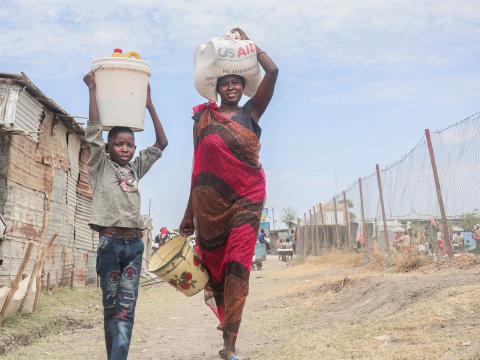
The UN recently raised the worsening hunger crisis warning in South Sudan as it launched the 2021 South Sudan Humanitarian Response Plan. “South Sudan is facing its highest levels of food insecurity and malnutrition since independence 10 years ago”, said Jens Laerke, spokesperson for the UN Office for the Coordination of Humanitarian Affairs (OCHA).
"We need more food. My children's hunger breaks my heart", pleads Khadija, a 30-year-old mother of seven.
Almost 30,000 internally-displaced people, among them Khadija, fled to the Malakal Protection of Civilians (PoC) site in South Sudan's Upper Nile State in 2013 due to conflict. She shares, "After my husband was killed right in front of me and my children, we decided to leave our home."
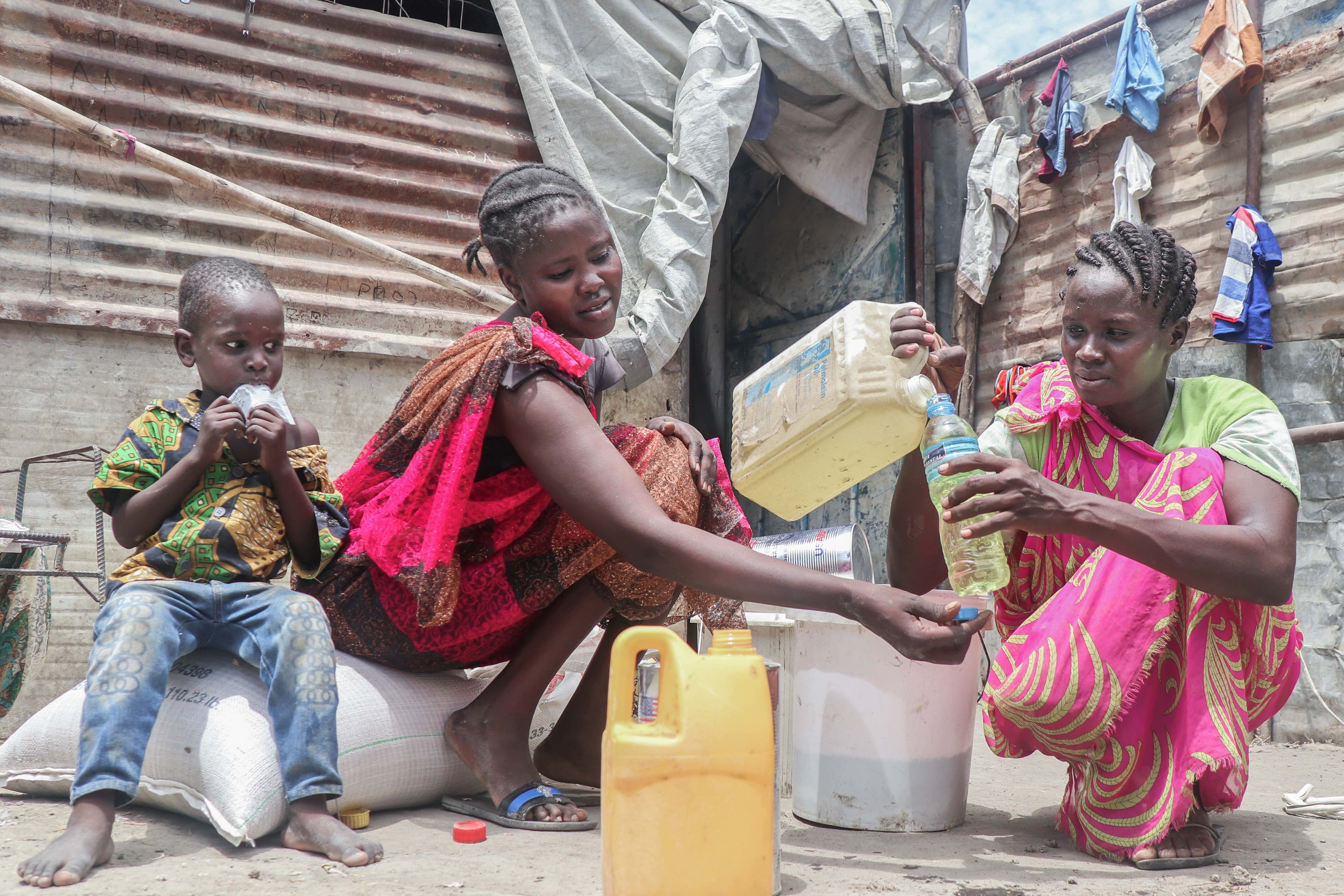
Before the crisis, Khadija's family depended on her husband's salary as a police officer. She says, "We were not rich but we were also happy with the little that we had."
The decision to leave was not easy. "It was a nightmare for the whole family. But eventually, I got over it as my children had food to eat from the food assistance we got, and a safer place to stay in the camp", she recalls.
Khadija adds, "Until 2017, we never complained of food because the food ration was enough for a month. But the 30 percent cut in February 2019 crippled us."
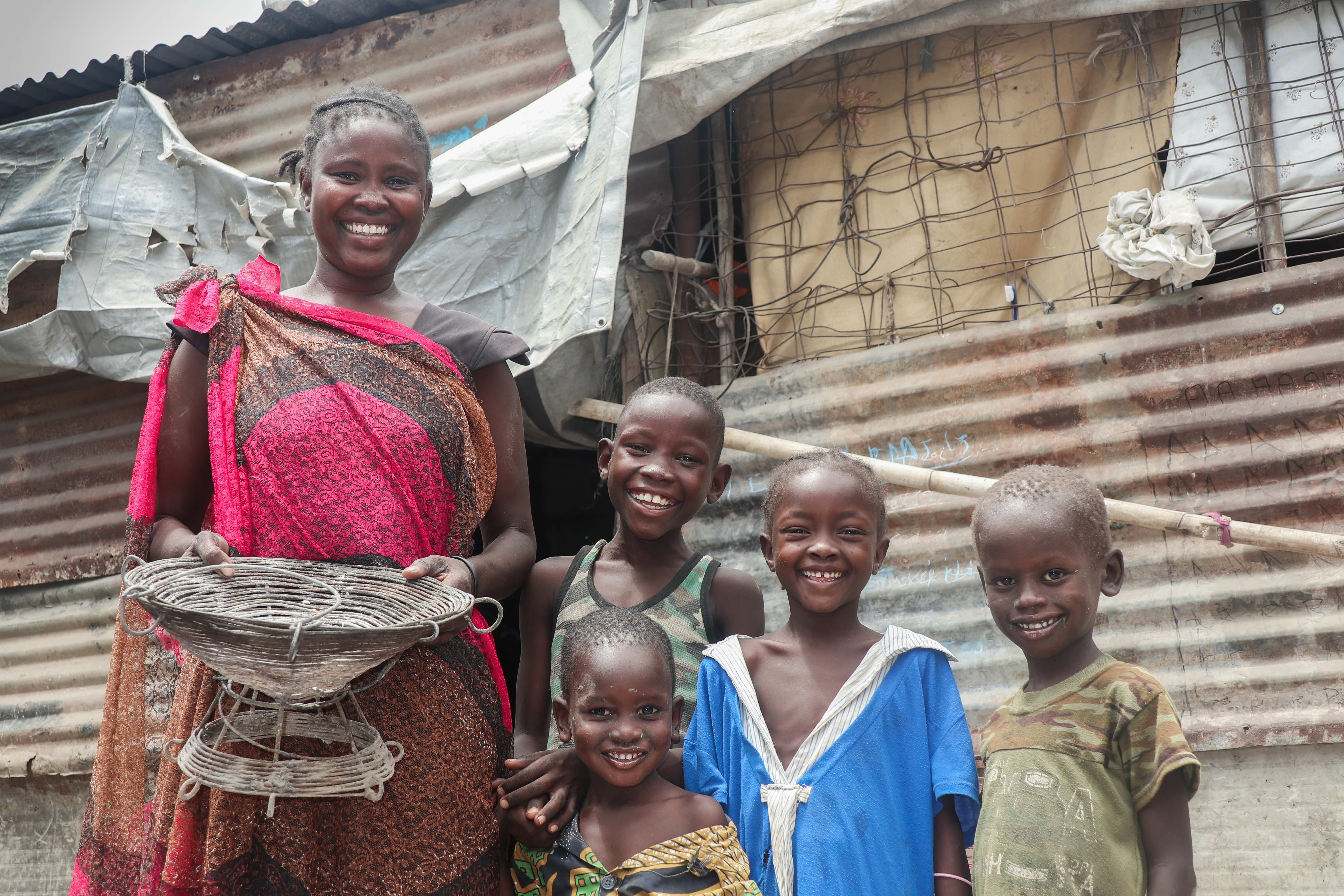
Miyen Joseph, World Vision's Food Assistance Officer in Malakal, said that the 2013 conflict-affected many people in South Sudan, including those in the Upper Nile State, located in the country's northeastern region with an estimated population of 964,353 (from UNDP report).
Many of the displaced are single mothers who lost their husbands during the fighting. Families who took refuge in the IDP camp were provided with food assistance composed of cereals, vegetable oil, salt, liquid–nutrient supplement for children under-five years, and CSB++. These relieved mothers like Khadija from fear of their children suffer from hunger.
We were told the COVID-19 pandemic kills people with the weak immune system. With this situation, I am worried for my children.
However, the food ration was decreased in 2019 by 70 percent. It was a blow for the thousands of people dependent on the ration. "I helplessly watched my daughter Josephine become malnourished due to lack of enough food to eat. We still endure this as the supply lasts only for 15 days. We stay hungry when for the rest of the days until the supply for the month comes," she shares.
Khadija is scared of losing her children to hunger. "I always imagine leaving the PoC site but it is not yet safe out there for us. I also do not even have anything to support my children. The food keeps them healthy despite our dire situation."
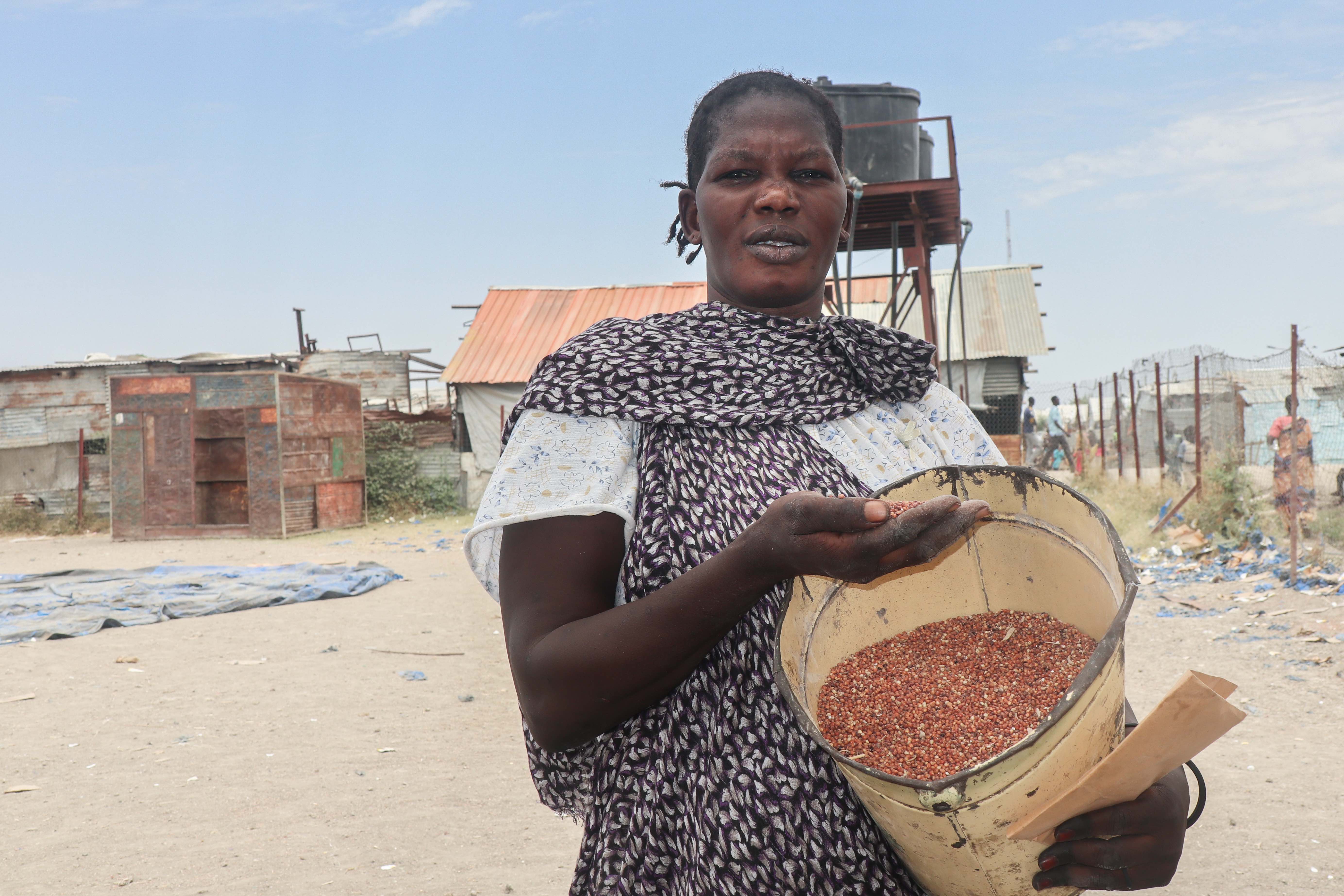
Miyen adds, "People in the camp always shared their fears to return to their homes as some areas are still not safe, while others are worried about how they will support their families when they live."
Khadija appealed to humanitarian organisations and the government to increase the assistance to ensure the children's well-being and health. "We were told the COVID-19 pandemic kills people with the weak immune system. With this situation, I am worried for my children", she says.
"Watching my children sleep hungry for days frustrate and bring me pain. But there is nothing I can do. As a mother, I always hope my children have food to avoid getting malnourished and die of hunger," she sadly adds.
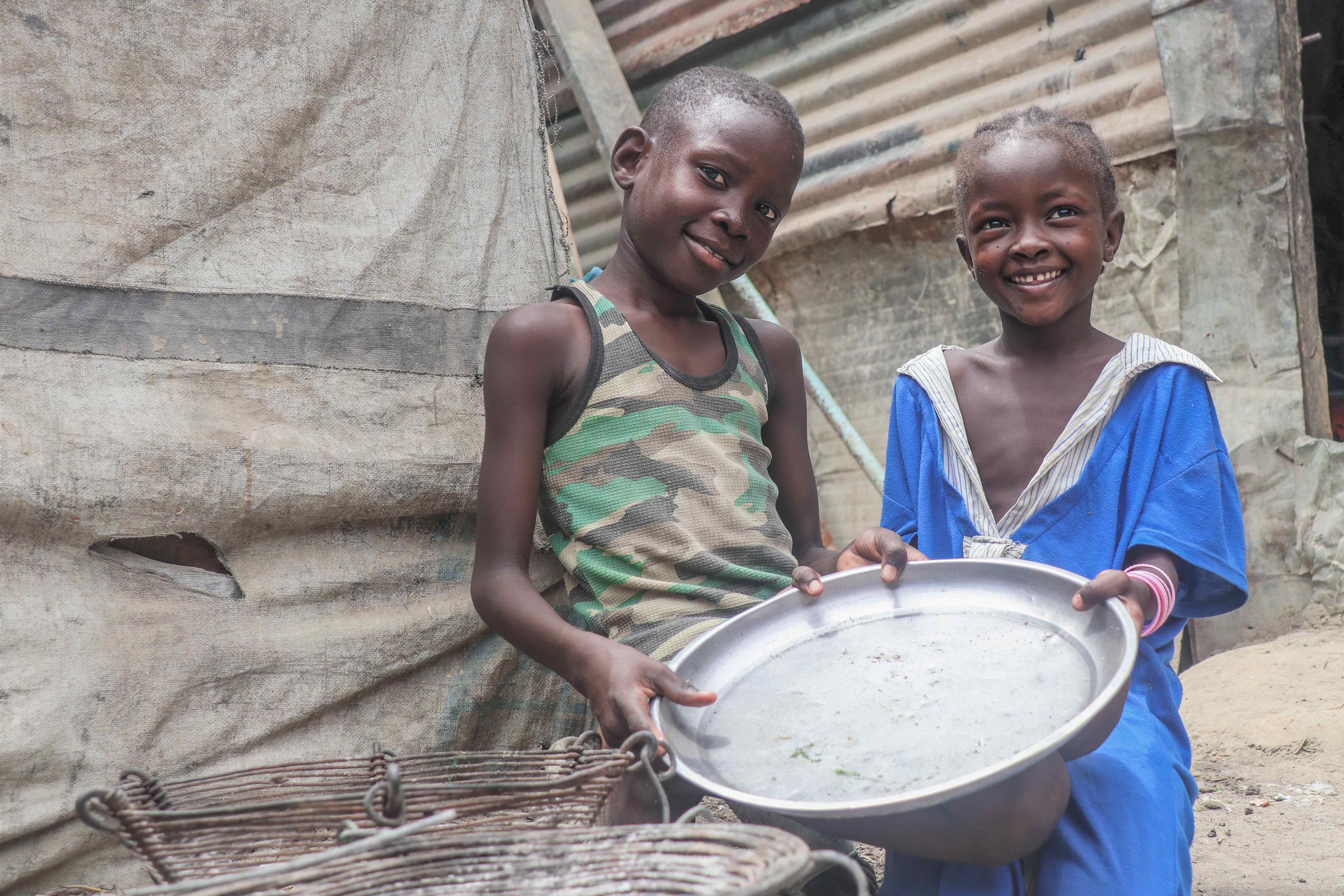
Aside from the general food distribution, World Vision, in partnership with the World Food Programme (WFP), conducts activities that help educate the internally-displaced in the camp and nearby communities about the preventive measures of COVID-19, as well as support groups produce facemasks.
The people who have sought refuge at the Malakal IDP camp since December 2013 are mostly from nearby Malakal, Panyikang Fashoda, Nasir Ulang counties, and some from Jonglei State.
World Vision, with WFP’s support, provides food assistance to approximately 1.1 million internally displaced people in Juba IDP Camp and two PoC sites in the country.
Download a copy of the 2021 South Sudan Humanitarian Response Plan here.
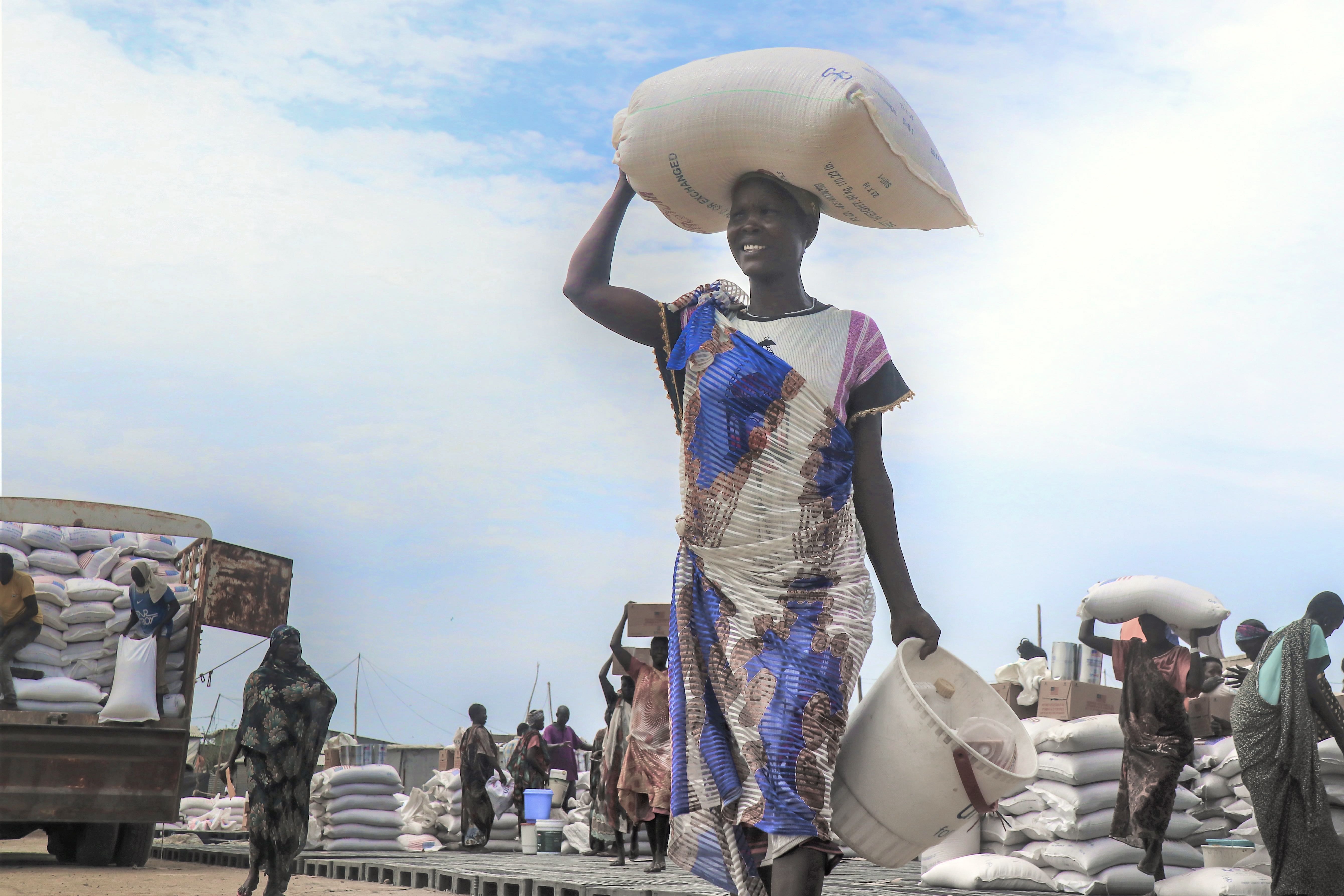
Story and photos by Scovia Faida Charles Duku, Communications Coordinator